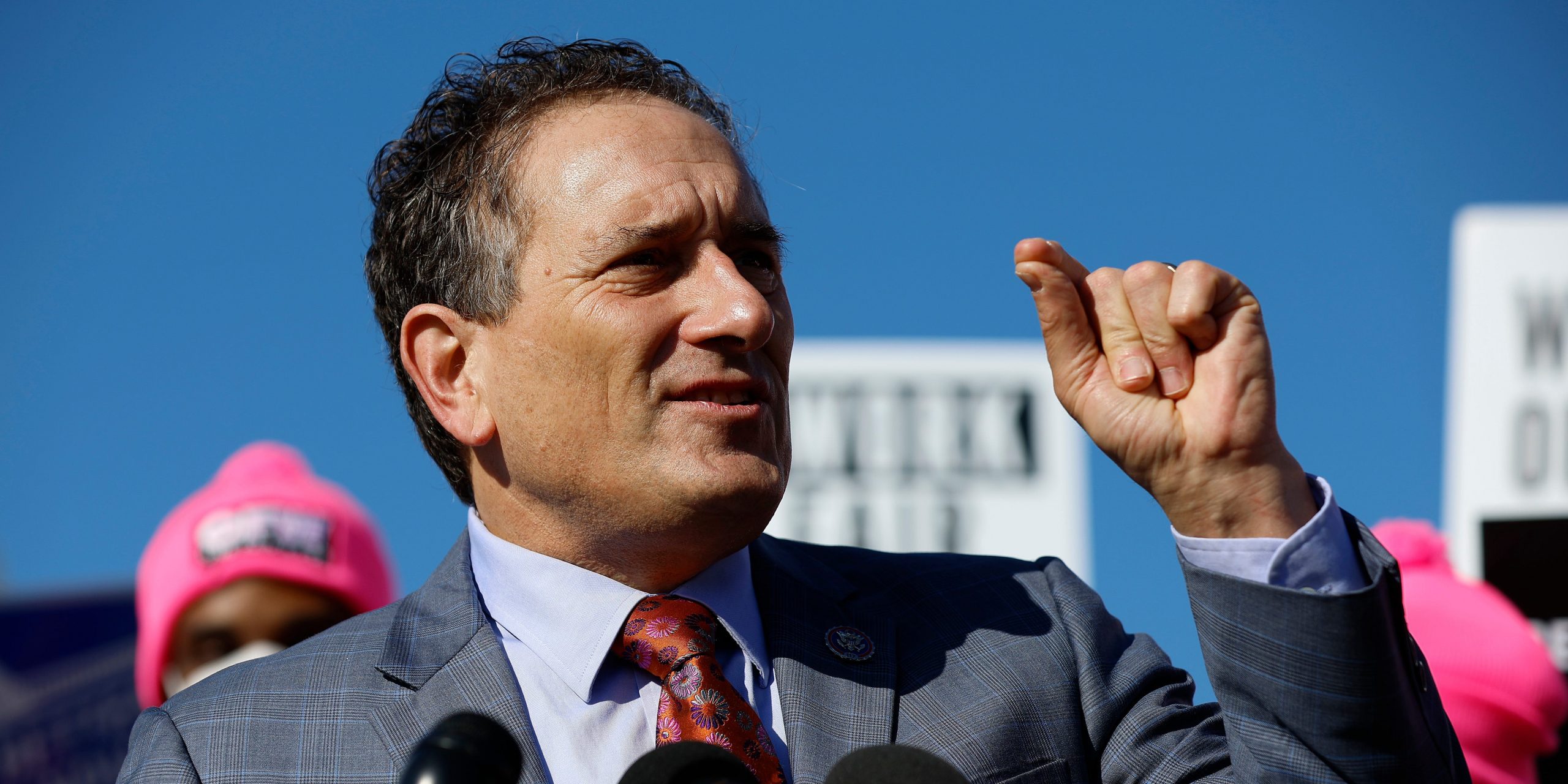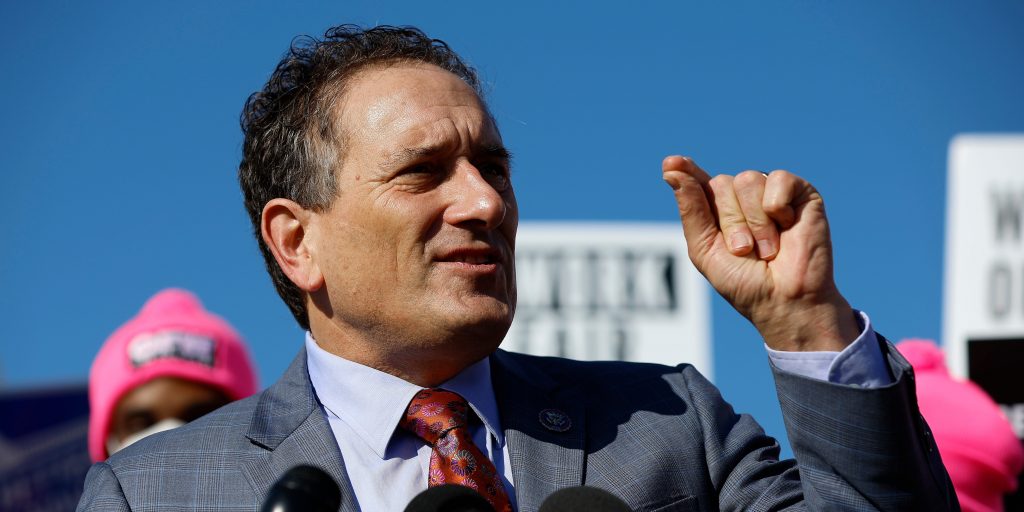
- Rep. Andy Levin introduced a resolution that would allow House of Representative staff to organize.
- Congressional staff has been agitating for a union after years of workplace issues.
- Democratic leaders Nancy Pelosi and Chuck Schumer have said they'd back staff's plans to unionize.
Rep. Andy Levin will introduce a resolution on Wednesday giving staffers in the House of Representatives the green light to form unions in their offices and committees. Should the resolution pass, it could alter Congress's grueling work culture and practices.
The Michigan Democrat unveiled the legislation a week after House Speaker Nancy Pelosi indicated she'd support employees who wanted to organize, and one day after White House press secretary Jen Psaki said President Joe Biden was on board with the effort. While congressional support agencies like the Capitol Police and Library of Congress have been allowed to unionize for some time — and have — the resolution would extend those powers to House employees in individual members' offices and on committees. (You can read the resolution below.)
Employees who wish to unionize point to historically low pay, a lack of accountability for bad behavior by lawmakers and managers, and poor gains in diversifying Congress' workforce as key reasons for seeking greater labor protections. Their case got a significant boost as an anonymous Instagram account called Dear White Staffers began posting staffers' experiences with sexual harassment or living on food stamps, causing it to explode in popularity on Capitol Hill.
Publicly, the organizing fervor is only occurring on the Democratic side; House Minority Leader Kevin McCarthy, a California Republican, told Punchbowl News that, "I don't think it would be productive for the government."
Congressional staffers are allowed to unionize thanks to the Congressional Accountability Act of 1995 — but the act also requires a resolution in each chamber for the necessary provisions to go into effect.
"You built the car but you have to turn it on," Daniel Schuman, policy director at Demand Progress, said of the legislative mechanism. "The resolution will turn it on."
If the resolution passes the House, it effectively would give a green light to organizing in that chamber by extending legal protections to employees who seek to organize their offices or committees, and would allow the Office of Congressional Workplace Rights the ability to certify results of union elections and recognize union representatives. Each individual office or committee would have to unionize individually.
A spokesperson for Pelosi declined to comment on whether she'd support Levin's resolution, or put it up for a vote in the House.
On the Senate side, a few Democratic lawmakers have tweeted support for allowing staff to unionize after a spokesperson for Majority Leader Chuck Schumer said the New York Democrat "believes that hard-working Senate staff have the right to organize their workplace and if they chose to do so, he would support that effort."
But so far, no Democratic senators have put forth the necessary resolution to give their employees organizing rights.
Sen. Ron Wyden of Oregon, a Democrat who was one of the senators to tweet that staff should be allowed to unionize, told Insider, "I think a number of my colleagues are working on it already. So I'll look at that."
Sen. Bernie Sanders of Vermont hailed bringing collective bargaining to the Capitol as a step in the right direction — albeit one that might require more groundwork."We'll take a look, not right at this moment," he told Insider while walking through the Senate tunnels. "But it's certainly an idea that appeals to me."
Bryan Metzger contributed to this report.
